That is the age old question when learning a musical instrument. This lesson explores that foundation needed for various styles of music and what would you need to be successful with each style.
That is the age old question when learning a musical instrument. This lesson explores that foundation needed for various styles of music and what would you need to be successful with each style.
Drawing from The Elements of a Successful Music Program page, right here on the Learning Ukulele with Curt site. The various areas of study, exploration, practice — whatever you want to call it are:
- Technique is the physical control and coordination needed to play an instrument or sing.
- Theory is the body of principles behind music.
- Ear Training is the development of the active and passive capacity to relate to music aurally.
- Reading is the ability to reproduce music from written notation.
- Repertoire includes the songs within a musician's performance ability.
- Improvisation is the ability to spontaneous create melody over a predetermined chord progression.
- Musical Idioms is the study of music and the musical styles it involves well-developed categories as; Rock, Blues, Country, Jazz, Bluegrass, Classical, Folk, Urban, and Fusion. It also includes subdivisions and specializations.
- Songwriting is the creation of original music based on a single melodic line with a chord progression.
- Arranging involves the choice of instruments, tempo, rhythmic feel, form, intros, endings, interludes, solos, harmonies, and instrumental accompaniment of a song.
- Interpretation involves the ability to perform a song or composition in a unique and personal way. This is the
Artistic
part of being a musician, part pf performing. By increasing your vocabulary of scales, intervals, arpeggios, sequences, chords, rhythmic patterns, and dynamics you'll have a foundation to drawn for creating your ownvoice
on your chosen instrument.
With 2000+ lessons, songs, books, videos, play-along tracks and related assets as of 2 January 2025 on LearningUkulele.com — it can get a bit overwhelming to figure out what to work on and even simply where to start. Start with the Lessons Series section of the site, a curated set of lessons, each covering a specific topic and area of study and the related lessons.
First, a Few Practice (exploration) Principles
- Establish a long term musical goal, and keep it in mind at each practice session.
- Focus on your weaknesses, not on your strengths. Work only on the weaknesses that are relevant to your long term musical goal (Principle No. 1).
- Set a short-term goal before each practice session, so you know how the first 10 minutes will be used before you start.
- Practice what you don't know, NOT what you do know.
- If it sounds good, it's not practice, and it doesn't count towards your practice session.
- Don't practice anything wrong; not one single note or one beat. When in doubt, triple check the note or beat, and then check it again.
- Don't play pieces or songs through from beginning until end; work on parts or pieces of songs.
- Leave your instrument out, or, if you're a singer, leave your music out on a music stand, in a place where you will see it every day.
- Practice for at least 10 minutes every day. If you miss days, don't give up. Just get back on schedule.
- Don't practice the same thing, in the same order, that you did the day before.
I use this line on my private students ALL the time when they're trying to do something too… fast. Slowdown, speed is a by-product of playing accurately and under control.
Fast is nothing more than slow — quicker.
— Curt
Getting Started Series of Lessons
Although this might be viewed as a beginner series of lessons, and you might think you are beyond that stage. I venture to guess that ever seasoned players will get something out if it. Take a quick pass through the lessons in the Getting Started Series and fill in some gaps. Even myself when reviewing and editing the lessons and material in LearningUkulele.com I often refresh my memory and can use something I haven't used in a while.
Two Approaches Too Learning Music
The Song-Based Approach
The song-based approach is one where you pick a song and the song tells you what you need to know to perform the song. This approach really needs the guidance of someone who already knows how songs work and the components of songs in general. And, specifically, can guide you in learning that particular song and discovering the ingredients that can be re-used for future songs.
A Systematic Approach
This approach builds a solid foundation of what is needed to perform ANY song by building a set of chords that are required for most songs. It really benefits from the guidance of an expert teacher, coach, advisor, mentor, etc…
This is my approach – NOT to, specifically, teach you songs, but to teach you the principles that are inherent in every song. This allows you to learn any song and develop your repertoire and voice. We do use songs based on the principles being learned. Or, if you are working on a performance piece.
With this approach, you can help the person using the Song-Based Approach.
Related Lessons, Videos, Lesson Series, Songs, Books & Reference Charts, Resources & Assets, Workshops are below.
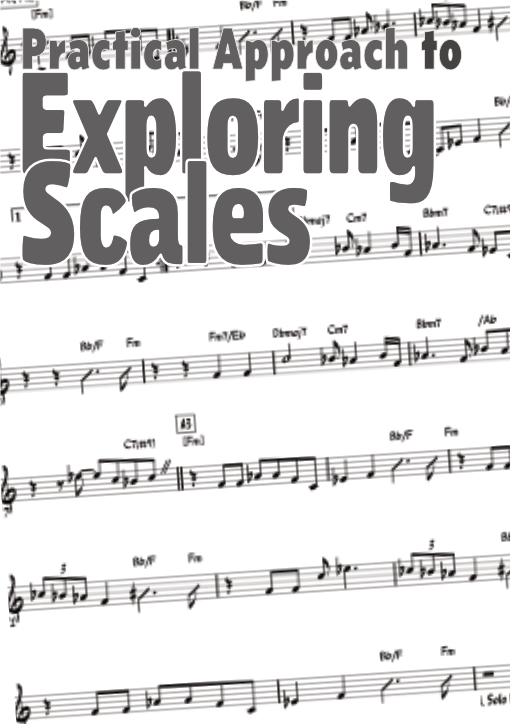
On ukulele there aren't many positions where you can play a one octave scale from the root to octave. An instrument like the guitar with the additional lower strings five and six allows one to play a one octave scale in multiple positions in the basic 4-fret, 4-finger position. On ukulele there might be one or two depending on the scale and the key - and whether your using a low string four tuning. This lesson offers a practical approach to practicing your scales on ukulele.
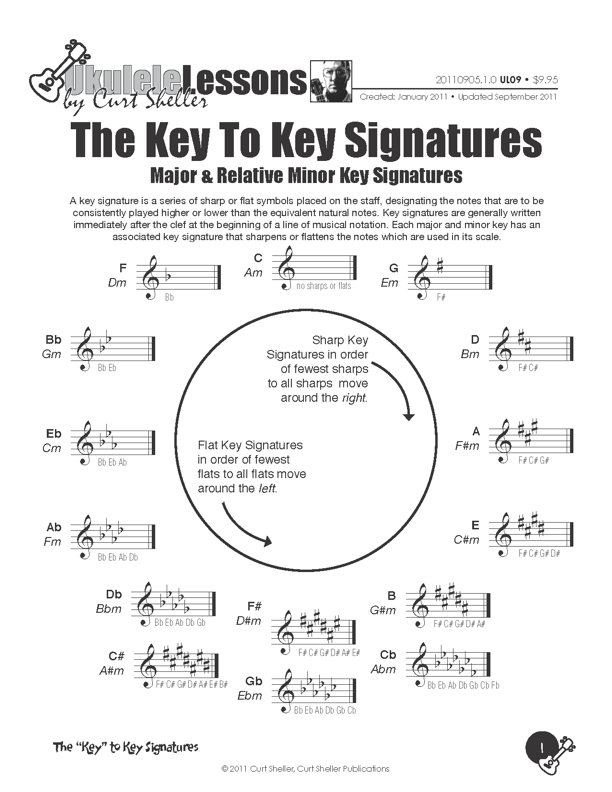
A "Key Signature" is a series of sharp or flat symbols placed on the staff, designating the notes that are to be consistently played higher or lower than the equivalent natural notes. Key signatures are generally written immediately after the clef at the beginning of a line of musical notation. Each major and minor key has an associated key signature that sharpens or flattens the notes which are used in its scale.

Core Chords for Ukulele, The Big Six - From four F7 chord voicings or shapes, your can build your massive 4-part, a.k.a., “jazz” chord vocabulary. Beyond basic open position chords, basic movable form chords and a core set of 4-part chords. There are just too many chords shapes too memorize.

QuickStart Scale and Arpeggio Fingering Series are a concise, well-organized series of books and lessons ideal for any ukulele, guitar or fretted string player beginning to explore scales and arpeggios. Unlike so many other instruction books on the market, QuickStart Scale and Arpeggio Fingering Series keeps a sharp focus on the six critical scales, their fingerings and their related chords. All material is covered in every key.

Learning the names of the notes on the fingerboard is indeed a crucial skill for any musician, especially those who play stringed instruments like the guitar, violin, or cello. Having a solid understanding of the notes on the fingerboard can significantly enhance your playing, improvisation, and overall musicality. Here's a step-by-step approach you can follow to learn the fingerboard:
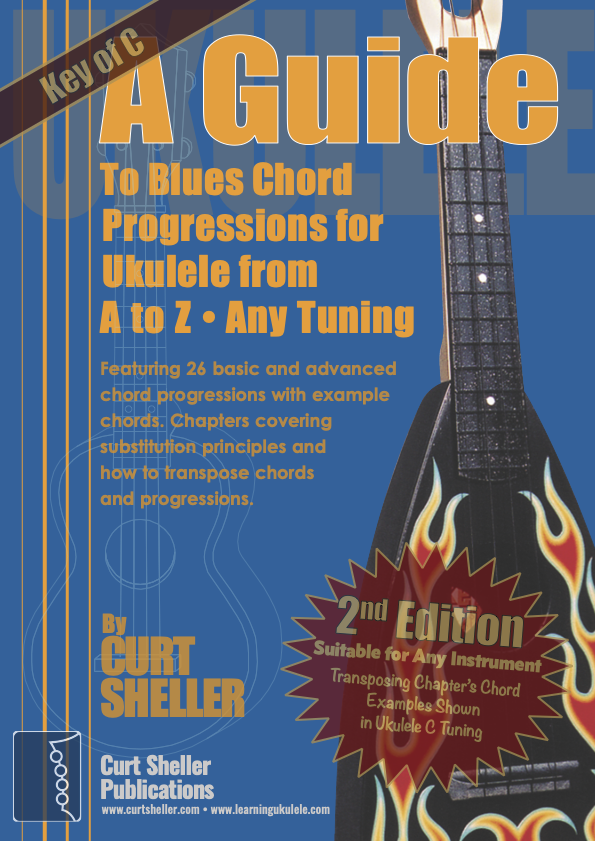
The Blues are at the heart of all American music. It has influenced Country, Rock, Folk, Jazz, Bluegrass and just about every form of American music we listen to today. 26 blues progression in C and G tuning, progressing from basic to advanced jazz progression, with chord grids and substitutions explained.
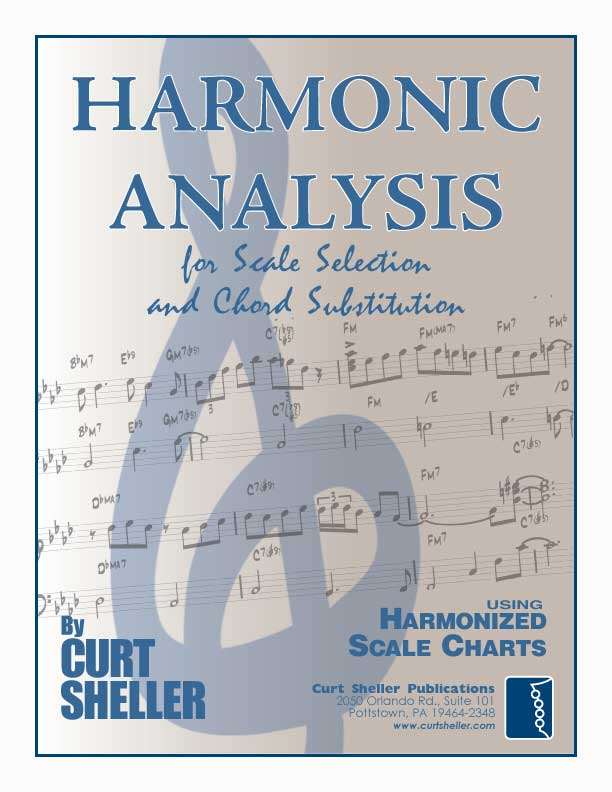
Harmonic Analysis is the understanding of the functional sequence of chords. It is the process used to analyze the harmonic structure of a progression, song or composition. This analysis is then used to make scale selections for improvisation and chord substitution.
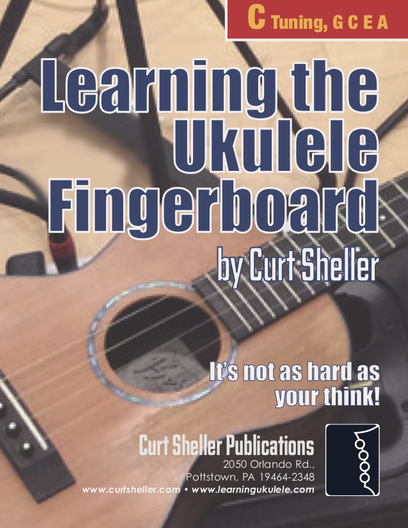
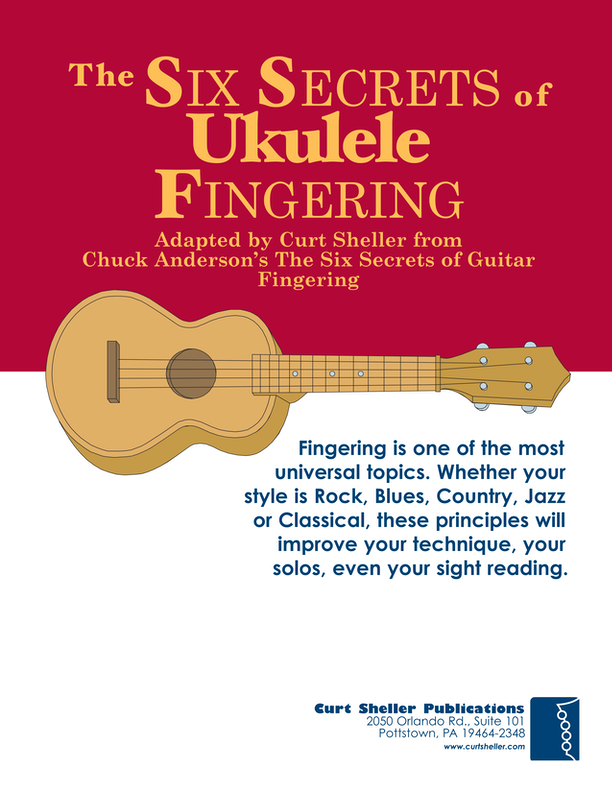
return in your investment)—it is this— learning the
f*ckingnotes of your OWN instrument. Sorry for the tough talks—but it is sooooo true!

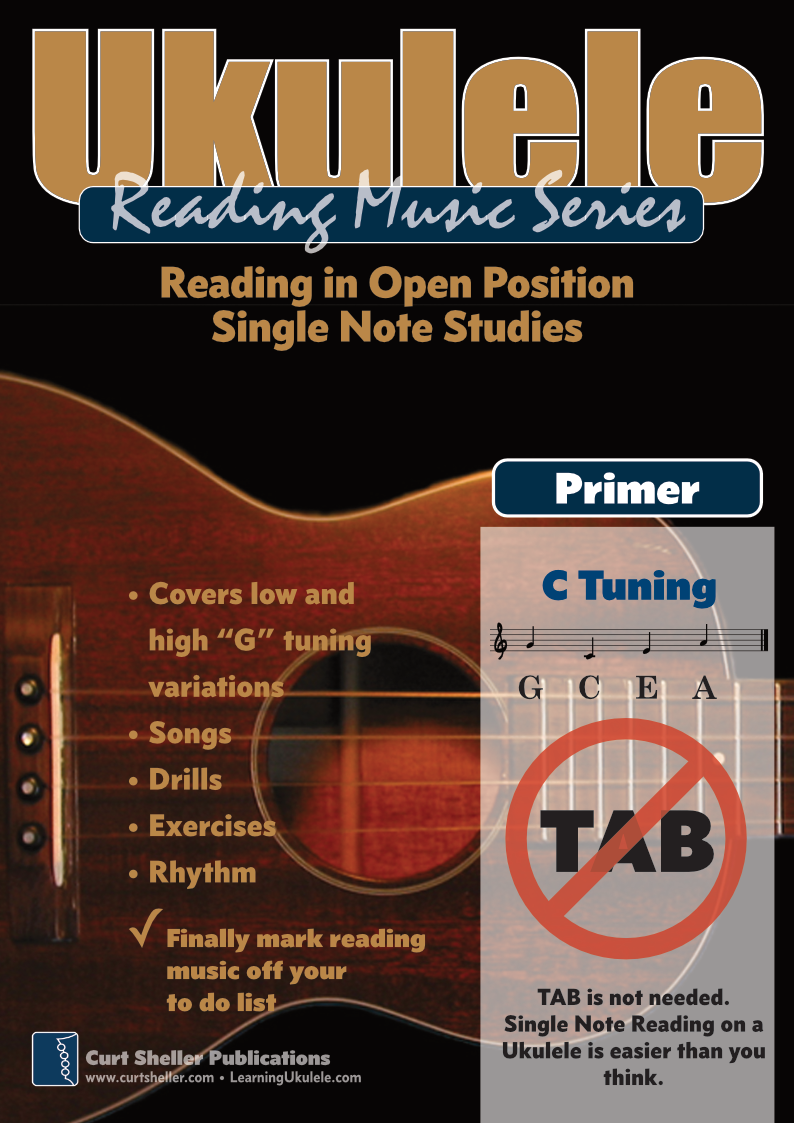
Learn to read single note melodies in the first/open position is a lot easier than you might think. Book: Ukulele – Reading Music Series – Primer
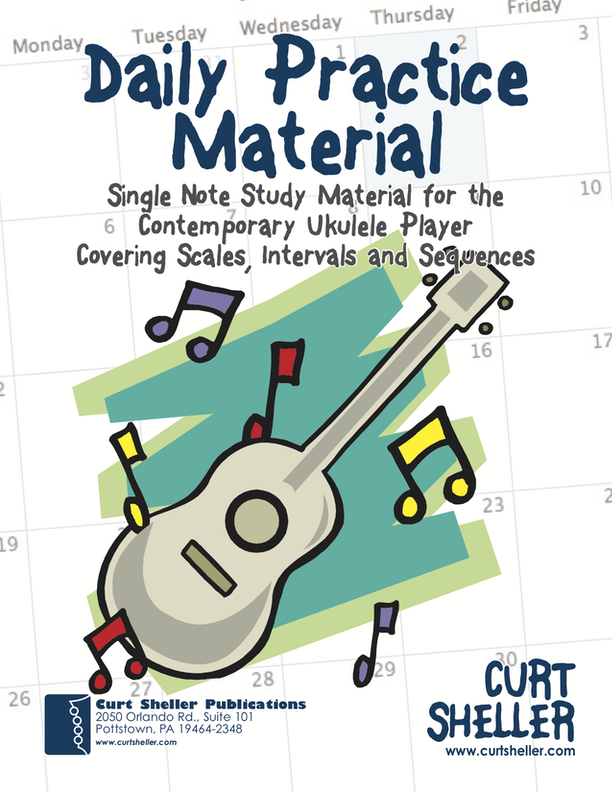
An organized collection of daily practice and reference material for the contemporary ukulele player for developing the vocabulary and knowledge necessary for single note playing. Book: Daily Practice Material for the Contemporary Ukulele
Checkout the Books & Reference Charts for additional Handy, Dandy Reference Charts.
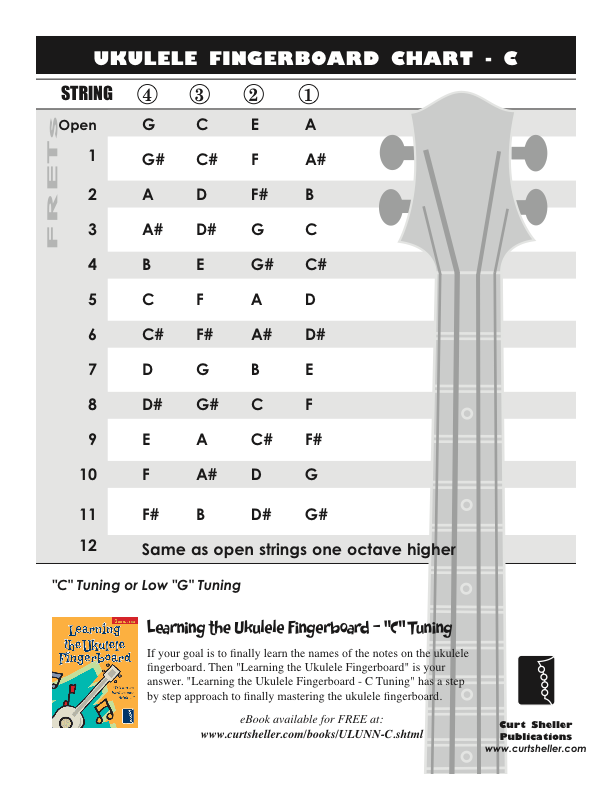
Ukulele Fingerboard Chart for C Tuning, Low or High G – G C E A
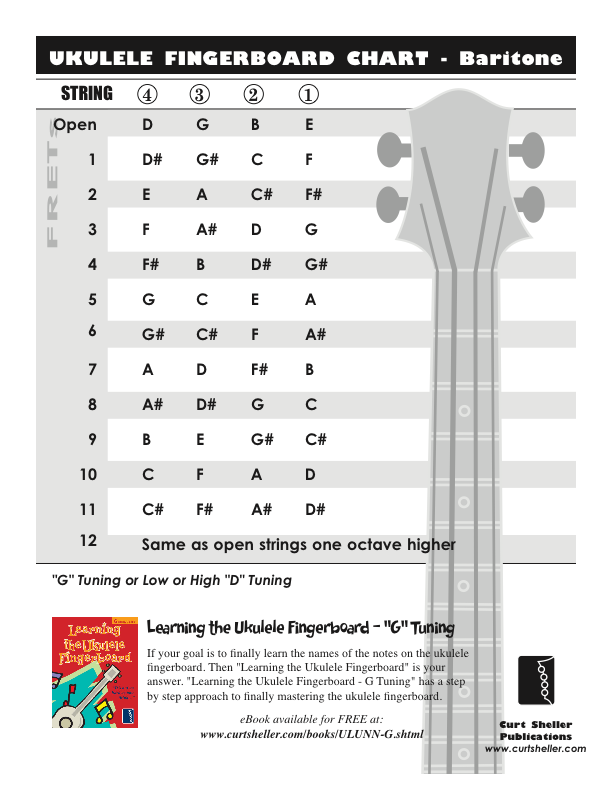
Ukulele Fingerboard Chart for G Tuning, Low or High A – D G B E
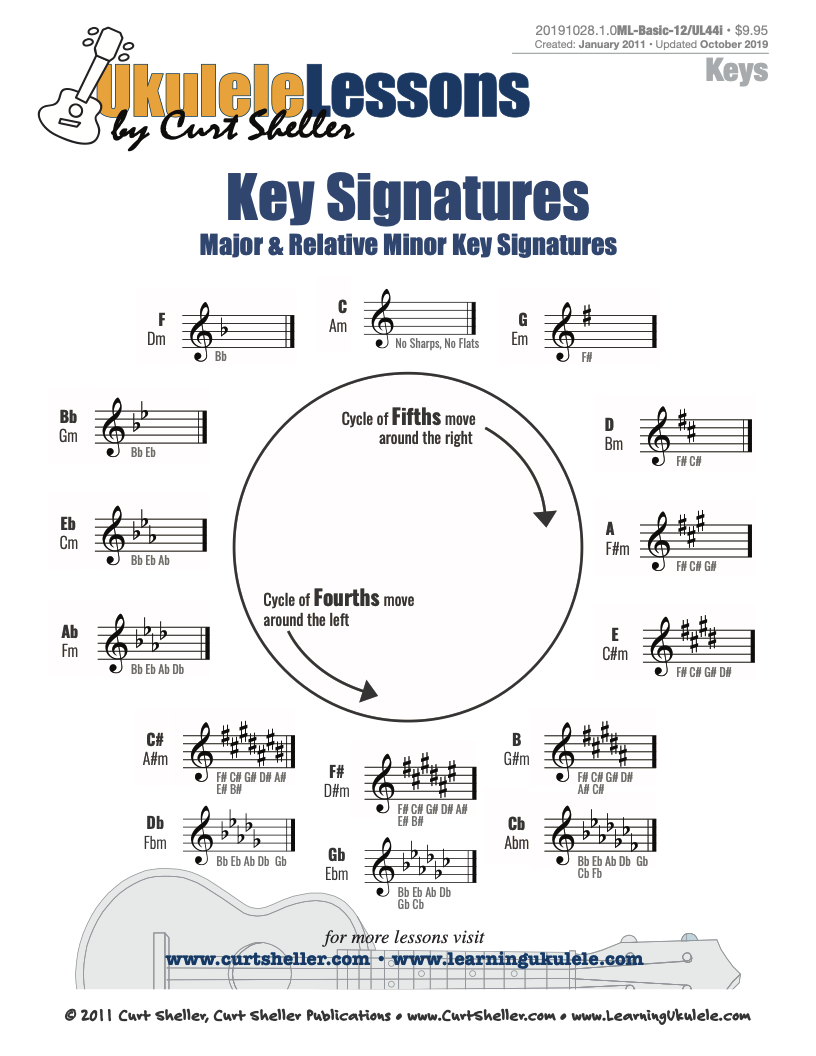
A handy reference chart of all 15 major and relative minor key signatures. US Letter 8.5 x 11 sized (ANSI-A) , A4

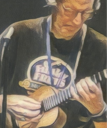
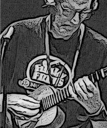
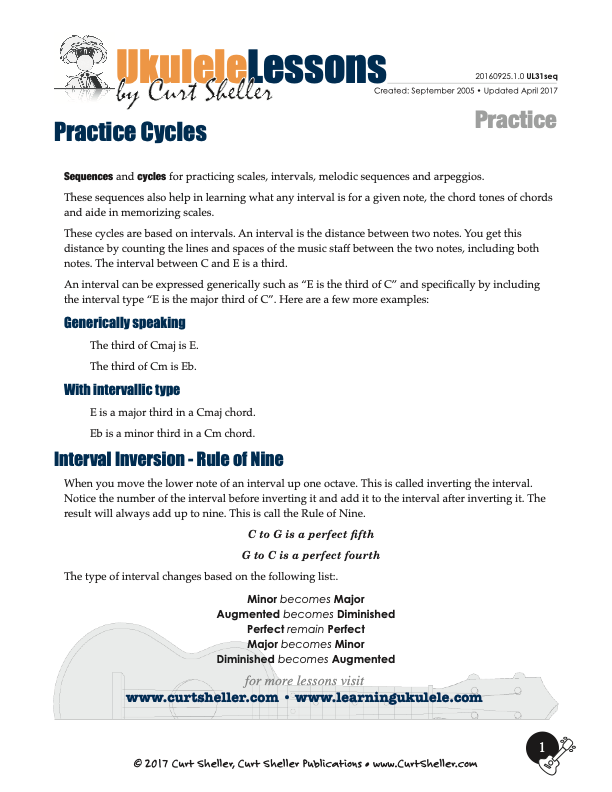



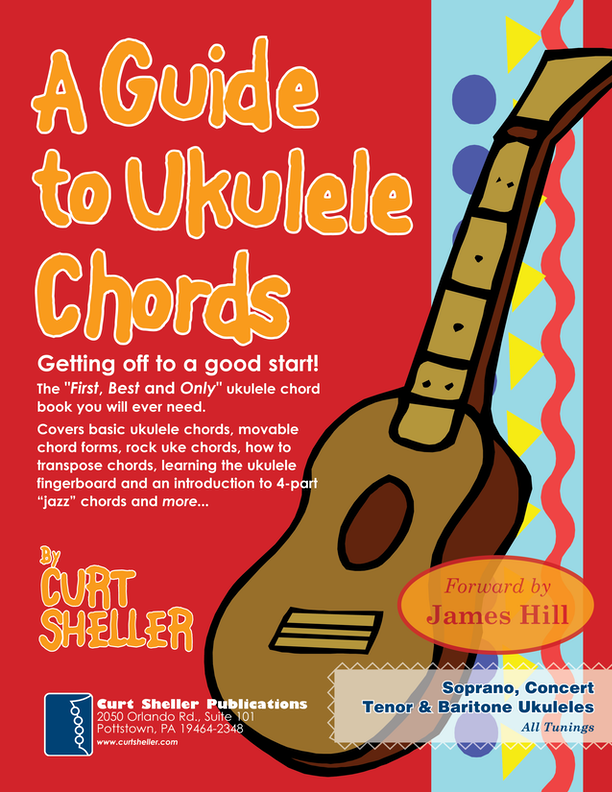

.jpg)